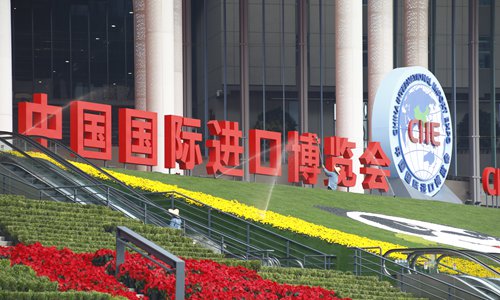China’s political system predates the West’s

Illustration: Liu Rui/GT
Han Dynasty (206BC-AD220) plays an important role in Chinese history. The dynasty was built on past achievements and opened up the future. Qin Dynasty (221BC-206BC), the dynasty before Han, was the first unified state in Chinese history. In China, there is a saying that the governmental system of Han Dynasty followed that of Qin Dynasty. Nowadays, it takes only about three hours on a high-speed train to travel from Beijing to Xuzhou, East China's Jiangsu Province, which offers an insight into the Han Dynasty.The Tomb of Chu King, probably the third-generation king of the State of Chu during the Han Dynasty, on the Shizi Mountain, is located in Xuzhou. In 1994, a large number of Chinese seals and ink pastes were excavated from the tomb. If these seals and ink pastes are arranged in order, a generally complete bureaucratic system of the Han Dynasty emerges. In Xuzhou Museum, there is an introduction to Han Dynasty's bureaucratic system organized in the order of seals and ink pastes. In 1995, a large number of ink pastes from Qin Dynasty were found in Xi'an, Northwest China's Shaanxi Province, becoming an important original material to study the bureaucratic system of Qin Dynasty.
From these Chinese cultural relics, it can be argued that China had a mature bureaucracy even 2,000 years ago, which had formed a set of systems to govern the country and society. US political scientist Francis Fukuyama once said, "China really invented modern bureaucracy at the time of the Qin and Han dynasties."
Therefore, compared with Western Europe, China has a longer history of developing national strength and national systems.
China's political system has become the focus of global attention in recent years. All China-related topics, including the country's economy, trade, technology and military, may eventually lead to analyses of its political system. And all estimates of China's economic and social development will be, in the end, connected to its system.
If one opens textbooks on politics and history in the West, one will find that the description of China's political system is dated and stereotyped, as if China is still in the 1950s. Taking a glance at Western media's reports, one may feel that the Cold War is not yet over.
An apparent problem is that plenty of Western scholars still judge China's political system by Western standards. They rank political systems in accordance with Western theories, and believe China's centralized setup lags their democratic system and must evolve into democratic one. With the expansion of Western civilization in the past five centuries, such an understanding is considered reasonable.
But actually, China's system existed long before the West formed its own, and has developed in China's own way.
When China had not opened up to the world, the difference in political systems did not matter much. However, China has become powerful through its own system, one that is different from the West's. Thanks to constant reforms, the system radiates energies and remarkable achievements that many Western countries have dreamed of but failed to realize.
The influence of China's political system has already spread to the entire world. It is clear that analyzing China and its political system based on outdated theories and stereotypes reaches nowhere. What it only leads to is the fear of China.
But how to set people free from such shackled mind-set? This is something both Chinese and Western scholars need to work together on. Addressing this problem could be difficult, but under the circumstances that China is opening up to the world widely, it can be much easier than ever.
For example, scholars can take a field trip to Xi'an or Xuzhou, and start to re-recognize China's political system from there.
While the problem remains — whether the West would like to drop their sense of superiority and understand China's history with sincerity?
The author is a senior editor with People's Daily, and currently a senior fellow with the Chongyang Institute for Financial Studies at Renmin University of China. dinggang@globaltimes.com.cn. Follow him on Twitter @dinggangchina


